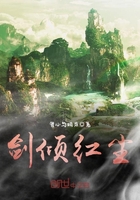One moonlit night, when we were sitting in the Theatre of Dionysus, we heard a shrill boy's voice soaring into the night, with that pathetic, unearthly quality which only boys'voices have。 Suddenly it was joined by another voice, and another。They were singing some old Greek songs of the country。We sat enraptured。Raymond said,“This must be the tone of the boys'voices of the old Greek chorus。”
The next night this concert was repeated。 As we distributed a great many drachmas, the third night the chorus was enlarged, and gradually all the boys of Athens gave themselves a rendezvous to sing to us by moonlight in the Theatre of Dionysus。
At this time we were very much interested in the subject of Byzantine music in the Greek Church。 We visited the Greek Church and heard the wonderful plaintive chant of the Maitre。We visited the seminary for young Greek priests just outside of Athens。They showed us their library of manuscripts, dating back through the Middle Ages。We were of the opinion, as are many distinguished Hellenists, that the hymns of Apollo, Aphrodite, and all the pagan gods had found their way through transformations into the Greek Church。
Then was born in us the idea of forming once more the original Greek chorus from these Greek boys。 We heldcompetitions each night in the Theatre of Dionysus, and gave prizes to those who could present the most ancient Greek songs。We also enlisted the services of a professor of Byzantine music。In this way we formed a chorus of ten boys who had the most beautiful voices in all Athens。the young Seminarist, who was also a student of Ancient Greek, helped us to set this chorus to The Suppliants of Aeschylus。These choruses are probably the most beautiful that have ever been written。One I especially recall portrays the fright of the maidens who gather around the altar of Zeus, seeking protection from their incestuous cousins coming across the sea。
And so, with our studies of the Acropolis, the building of Kopanos, and the dancing of the choruses of Aeschylus, we were completely immersed in our own work。 Except for occasional excursions to the outlying villages, we desired nothing more。
We became greatly impressed upon reading of the Mysteries of Eleusis。
“Those mysteries of which no tongue can speak。 Only blessed is he whose eyes have seen them;his lot after death is not as the lot of other men!”
We prepared to visit Eleusis, which is thirteen and a half miles from Athens。 With bare legs, bare feet, and sandals, we started to dance down the white and dusty road that skirts the ancient groves of Plato by the sea。We wished to propitiate the gods, and to that end substituted dancing for walking。We passed a little village of Daphnis and the Chapelof Hagia Trias。Through the opening in the hills we came in sight of the sea and the Island of Salamis, where we paused awhile to reconstruct the famous battle of Salamis, when the Greeks met and destroyed the Persian host, commanded by Xerxes。
Xerxes is said to have watched the battle, seated in his silver?footed chair on a hill in front of Mount ?galeos。It was in the year 480 B。C。that the Greeks, with a fleet of three hundred ships, destroyed the Persians and won their independence。About six hundred picked Persian warriors were stationed on an islet to cut of the Greeks, who were to be wrecked and driven on shore。But Aristides, who had been recalled from banishment and learned of the movements of Xerxes to ruin the Greek fleet, outwitted the Persians。
A Greek ship led on the attack
And from the prow of a Phoenician struck
The figure?head;and now the grapple closed
Of each ship with his adverse desperate。
At first the main line of the Persian feet
Stood the harsh shock;but soon their multitude
Became their ruin in the narrow firth。
They might not use their strength, and, jammed together,
Their ships with brazen beaks did bit each other,
And shattered their own oars。 Meanwhile the Greeks
Stroke after stroke dealt dexterous all around,
Till our ships showed their keels, and the blue sea
Was seen no more, with multitude of ships
And corpses covered。
We actually danced every step of the way。 We only stopped once at a little Christian Church, where the Greek priest, who had been watching us with growing astonishment coming up the road, insisted upon us visiting the church and having some of his wine。We spent two days in Eleusis, visiting her mysteries。On the third day we returned to Athens, but we did not return alone。We were accompanied by a group of shadowy initiates—Aeschylus, Euripides, Sophocles, and Aristophanes。
We had no desire to wander farther。 We had reached our Mecca, which, for us, meant the splendour of perfection—Hellas。I have since strayed from that first pure adoration of the wise Athena;and, the last time I visited Athens, I confess that it was no longer her cult that attracted me, but rather the face of a sufering Christ in the little chapel of Daphnis。But at that time, in the morning of life, the Acropolis held for us all joy and inspiration。We were too strong, too defiant to understand pity。
Each dawn found us ascending the Propylon。 We came to know the history of the sacred hill through all its successive periods。We brought our books and followed the history of each stone。We studied all the theories of distinguished archaeologists as to the origin and meaning of certain marks and portents。
Raymond made some original discoveries of his own。 Hespent some time on the Acropolis with Elizabeth trying to find the old footprints of the goats who came up the stones to pasture upon the hill before it was built。They actually did trace some of the prints, for the Acropolis was started at first merely by a group of goat?herds who sought shelter and protection for their focks by night, and they succeeded in tracing defnite criss?crossing of the paths taken by the goats。These date back at least a thousand years before the building of the Acropolis。
From the competition of a couple of hundred ragged urchins of Athens we, with the help of the young Seminarist, had selected ten with perfectly heavenly voices and, with his help, had begun to train them in singing the choruses。 We found hidden in the ritual of the Greek Church strophe and antistrophe so appropriate in harmony that they justifed our conclusion that these were the very hymns to Zeus, Father, Thunderer, and Protector;that they had been taken by the early Christians and transformed into hymns to Jehova。In the library at Athens we found in different books on ancient Greek music just such gamuts and intervals。Upon making these discoveries, we lived in a state of feverish exaltation。At last, after two thousand years, we were able to bring to the world these lost treasures。
The H tel d'Angleterre, where we stopped, generously put at my disposal a large salon where I could work each day。 I spent hours fitting to the Chorus of the Suppliants the movements and gestures inspired by the rhythm ofthe music of the Greek Church。We were so intent and convinced of these theories that it never occurred to us to realise the comic mélange of religious expressions。
Athens was then, as it usually is, in a state of revolution。 This time it was a revolution founded upon the diference of opinion between the Royal House and the students as to which version of the Greek language should be used upon the stage, the ancient or the modern。Crowds of students paraded the streets with banners in favour of the ancient Greek language。On the day of our return from Kopanos, they surrounded our carriage and acclaimed our Hellenic tunics and asked us to join their parade, which we did willingly, for antique Hellas。From this meeting a representation was arranged at the Municipal Theatre by the students。The ten Greek boys and the Byzantine Seminarist, all attired in multi?coloured flowing tunics, sang the choruses of Aeschylus in ancient Greek idiom, and I danced。This caused a delirium of joy among the students。
Then King George, hearing of this manifestation, expressed a wish to have the performance repeated at the Royal Theatre。 But the performance given before the Royal Family and all the embassies of Athens in the Royal Theatre lacked all the fire and enthusiasm of that in the popular theatre for the students。The applause of the white?kid?gloved hands was not inspiring。When King George came behind the stage to my dressing?room and asked me to visit the Queen in the Royal box, although they seemed quite pleased, still I realised that there was no real spiritual loveor understanding for my art。The ballet will always be the dance par excellence for Royal personages。
These events took place at the same time that I discovered our bank account was depleted。 I remember the evening after the Royal performance I could not sleep and, at dawn, I went all by myself to the Acropolis。I entered the Theatre of Dionysus and danced。I felt it was for the last time。Then I ascended the Propylaea and stood before the Parthenon。Suddenly it seemed to me as if all our dreams burst like a glorious bubble, and we were not, nor ever could be, other than moderns。We could not have the feeling of the ancient Greeks。This Temple of Athena before which I stood had in other times known other colours。I was, after all, but a Scotch?Irish?American。Perhaps through some affinity nearer allied to the Red Indian than to the Greeks。The beautiful illusion of one year spent in Hellas seemed suddenly to break。The strains of Byzantine Greek music grew fainter and fainter, and through it all the great chords of the Death of Isolda foated upon my ears。
Three days later, amidst a great crowd of enthusiasts, and the weeping parents of the ten Greek boys, we took train from Athens for Vienna。 At the station I wrapped myself in the Greek fag of white and blue, and the ten Greek boys and all the populace sang the beautiful Greek hymn:
Op ta kokala vgalméni
Ton Elinon to yera
Chéré o chéré Elefteria
Ké san prota andriomeni
Chéré o chéré Elefteria。
When I look back on this year spent in Greece I think it was really very beautiful, this effort to reach back over two thousand years to a beauty not perhaps understood by us, or understandable by others, a beauty of which Renan has written:
“O nobility!O simple and true beauty!Goddess whose worship signifies wisdom and reason。 Thou whose temple is a lesson of eternal conscience and sincerity, too late I come to the threshold of thy mysteries;I bear to thy altar a load of remorse。It has cost me infinite seeking to find thee。The initiation that thou conferest on the Athenian at birth I have conquered by meditation, by much efort。”
And so we left Hellas and arrived in the morning in Vienna, with our chorus of Greek boys and their Byzantine priest professor。















